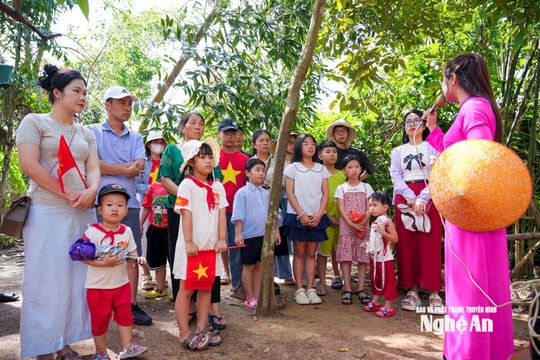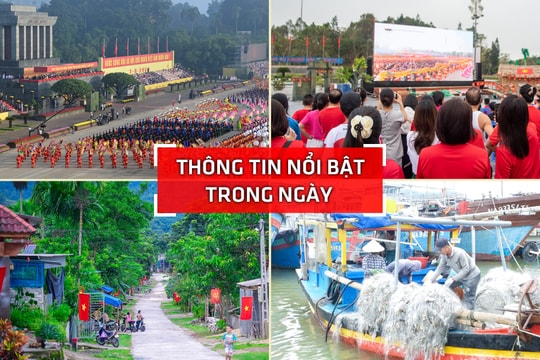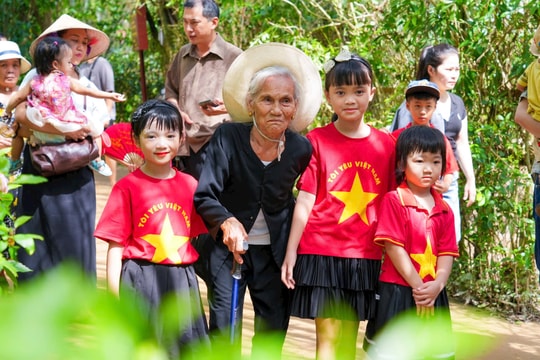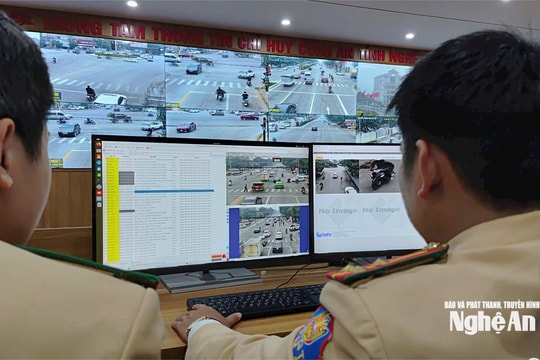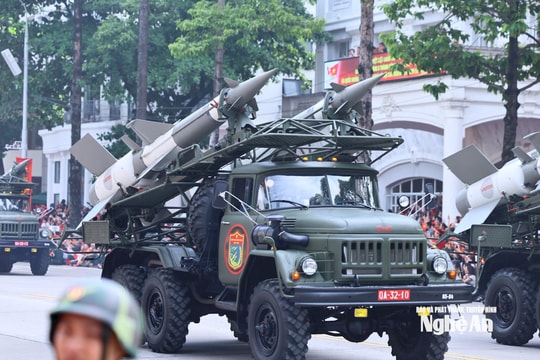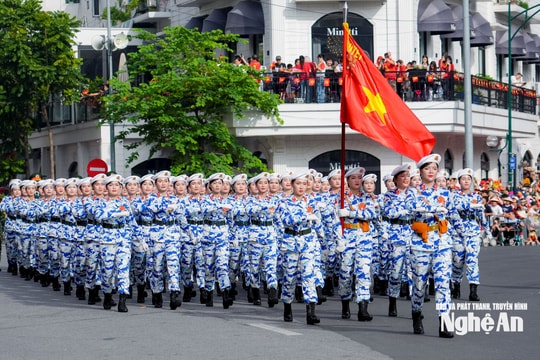National Day in mind
(Baonghean) - Looking back now, many times I feel, in the early days of the August Revolution of 1945, how lovely was my small village of Dong Bich?
On September 2, 1945, during the National Day celebration, Uncle Ho read the Declaration of Independence in Hanoi. When saluting the flag, he sang the song Tien Quan Ca, but in remote villages like Nghe An, that song was not sung yet. I remember that during the flag-saluting ceremonies, my villagers often sang two songs. One was “Raising the Flag, Raising the Flag” (instead of the National Anthem) and the other was “Duoc Kiem Thien” (instead of “Lan Le Ca”). On the first day of the August Revolution, the flag-saluting ceremony was solemn but also very simple. When saluting the flag, everyone stood at attention, singing “Raising the Flag, Raising Us Together, Let’s Fight”, the left hand was kept straight, pressed close to the body, the right hand was clenched like a fist and raised above the ear, solemnly and respectfully.
From August 19 to September 2, every morning my villagers gathered in front of the communal house yard to salute the flag. On the morning of September 2, after the flag salute, there was a military drill by the militia platoon. The militia platoon was also made up of villagers, wearing brown shirts, barefoot, and carrying swords or wooden guns on their shoulders. My village militia was trained by Japanese soldiers (who had surrendered to the revolution and were then called New Vietnam) stationed next to Dao Ngan communal house (now Thanh Cat commune, Thanh Chuong district). Although my village militia platoon wore brown shirts, barefoot, and had wooden guns, their military operations were very methodical and disciplined. The movements of standing at attention, resting, turning left, turning right, marching steadily, and stepping were all done in unison. They practiced rolling, crawling, crawling, throwing guns, and throwing grenades very skillfully. My villagers, young, old, men, and women, stood watching the militia team perform, showing great enthusiasm, excitement, and pride in their village militia team. That's why some people contributed money and some contributed rice to voluntarily feed the village militia to practice month after month. Some people even donated a young calf to the militia to slaughter and treat the soldiers.
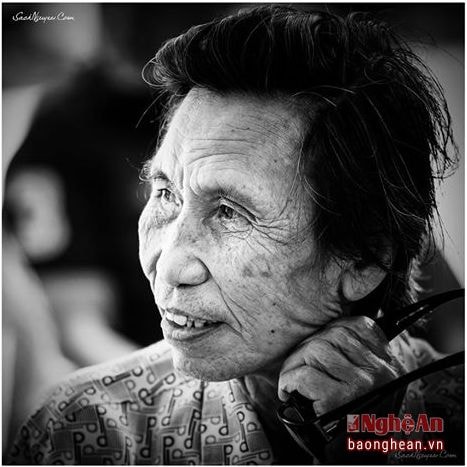 |
| Poet Thach Quy. |
My village was originally a deep-lying village, hidden in the mountains, remote and very sad. But in the early days of the August Revolution in 1945, the village's face brightened and became cheerful. In those days, the road leading to my village had a beautiful welcome gate made of coconut leaves and cycad leaves. On both sides of the road, there were slogans written on round trays painted white. On the roof of the village communal house, the red flag with a yellow star was always fluttering in the wind.
In the early days of August, the days were so joyful, but at night my village was even more interesting. In the past, my village was still dark and foggy at night. Now, in the communal house yard, on the village roads, there were bright torches everywhere. Young people, boys and girls in the village gathered at the communal house every night to practice new songs. Those were revolutionary songs, fresh, heroic and captivating. Until now, the melodies of those songs still resonate in me as I sit down to write these lines. In my village, there were Ms. Nhung, Ms. Yen, Ms. Thao Linh who were very charming, beautiful and sang extremely well. Every night, the clear voices of the sisters would sing: “Dan Nam, the nation is on the day of liberation” or “The army marches like waves, the bayonets are shining brightly”… Along with the joyful atmosphere of the first days of the revolution, the stirring, enchanting voices of the sisters were so captivating that some of the village boys changed their everyday names and re-created their names according to the lyrics of the sisters’ songs. Perhaps, those boys were infatuated with the sisters but did not dare to confess? Or was changing their names according to the lyrics of the songs also a discreet and delicate way of expressing their love? I only know that the truth is that on the first days of the revolution, many boys in my village voluntarily changed their names according to the lyrics of the songs of that day. I remember that Uncle Loc changed his name to Uncle Dan, Uncle Dinh changed his name to Uncle Nam according to the lyrics of the song “Dan Nam, oi…” sung by the beautiful girls of my village!
Perhaps such a romantic and strange love story is only found in my village?
And then, that day, in my village, those handsome men and beautiful women also became husband and wife! Looking back now, sometimes I feel, in the early days of the August Revolution of 1945, how lovely was my small village of Dong Bich?
Litmus
| RELATED NEWS |
|---|

